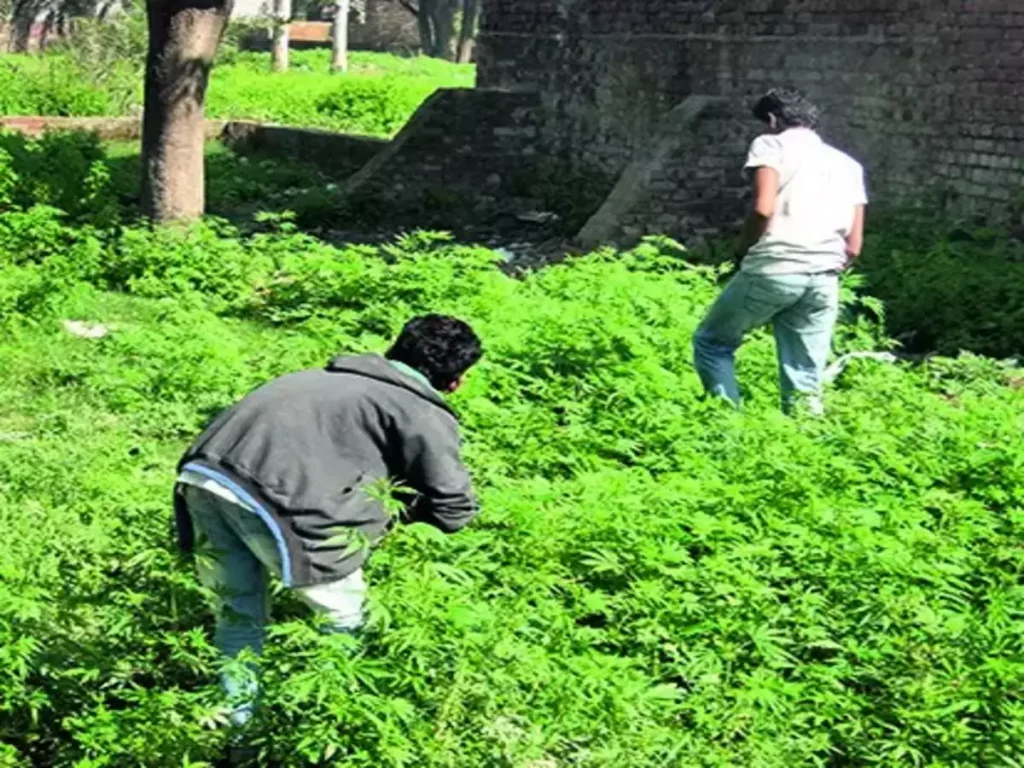Context:
Recently, the Himachal Pradesh government has approved a pilot study by two universities on the controlled cultivation of cannabis.
More on the News:
- In 2023, the HP government constituted a committee to examine the legalisation of cannabis/hemp cultivation (excluding charas) for medicinal, scientific, and industrial purposes.
- Now, according to the state cabinet, Chaudhary Sarwan Kumar Agriculture University in Palampur and Dr. Y.S. Parmar University of Horticulture in Nauni, Solan, will collaborate on a study that will evaluate the potential for cannabis cultivation in the future.
- The state’s agriculture department has been designated as the nodal agency for this initiative.
About Cannabis:

- Cannabis (marijuana) refers to the dried leaves, flowers, stems, and seeds of the Cannabis sativa L plant.
- The plant contains at least 125 different cannabinoids including delta-9 tetrahydrocannabinol (THC).
- Delta-9 THC is the most abundant form of THC in the cannabis plant.
- It has intoxicating effects, meaning it can temporarily alter a person’s mood, thoughts, and perceptions.
- The Cannabis sativa L plant also contains non-intoxicating cannabinoid compounds like cannabidiol (CBD).
Regulation of Cannabis in India:
- Its cultivation had been banned under the Narcotic Drugs and Psychotropic Substances (NDPS) Act, 1985.
- NDPS Act 1985 also prohibits the sale of cannabis resin and flowers.
- Section 10 of the NDPS Act allows state governments to regulate, permit, or prohibit cannabis cultivation for medicinal and scientific purposes.
- Section 14 of the NDPS Act grants the Central government the power to authorise and regulate cannabis cultivation for research or other approved purposes.
- Earlier other states like Uttarakhand (2018), Uttar Pradesh, and Madhya Pradesh, Manipur have granted permission for controlled cultivation for the cultivation of cannabis for medical and industrial purposes
Controlled Cannabis Cultivation:
- Specific cannabis varieties have minimal intoxicating properties, (such varieties are commonly known as hemp) the tetrahydrocannabinol (THC) cannabinoid content (a kind of chemical that has an intoxicating effect) in controlled cannabis should be less than or equal to 0.3 per cent.
- In Uttarakhand, the Centre for the Aromatic, Selaqui, has been the nodal agency for cultivating industrial hemp.
- In Madhya Pradesh, Sai Phytoceuticals has been granted a license under the newly amended hemp rules for the manufacture of medicine from cannabis.
- In J&K, the cultivation is being done at a farm in Jammu by the Council of Scientific And Industrial Research–Indian Institute Of Integrative Medicine (CSIR–IIIM) as a pilot project in Private Public Partnership (PPP) mode with a Canadian firm
Key applications:
- Cannabis sativa L plants containing very small, non-intoxicating amounts of delta-9 THC, which are also called hemp, are mainly used for textile fibre and for their edible seed oils.
- Cannabidiol (CBD) compounds in the plant are effective in treating chronic pain and have several other medical benefits.

